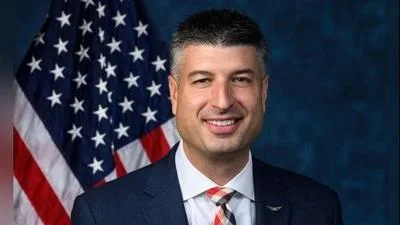Kevin M. Guskiewicz President at Michigan State University | Official website
Kevin M. Guskiewicz President at Michigan State University | Official website
Since founding the Citing Slavery Project in 2020, Michigan State University Professor Justin Simard and his students in the College of Law have collected more than 12,000 cases involving enslaved people and over 40,000 cases where judges and lawyers cited these cases as precedent.
When Simard was conducting research for his dissertation, he encountered a pre-Civil War case related to slavery that was cited as precedent in 2012. He began searching for other slavery citations from the past 30 years, expecting to find only a few instances. However, this initial assumption proved incorrect.
“What I thought would be a footnote in my dissertation highlighting the odd decisions of a few judges turned into a broader examination of the legal profession’s treatment of slave cases,” said Simard. “These have resulted in the persistent legacy of the law of slavery. I want to use this discovery to make the legal profession better.”
Simard's work has prompted members of the judiciary and legal community to reconsider their citation practices. "Our work has prompted judges and lawyers to reconsider the way they use citations and reflect on how those citations may have shaped the legal rules in those cases," he stated.
Judges from state supreme courts and courts of appeal nationwide are requesting training sessions. Law professors seek class presentations, while high school government teachers aim to integrate his findings into their curricula. Later in July, Simard will address the National Association of Women Judges.
“These judges and lawyers are interested in trying to improve the profession,” Simard said. “They can do that by using our database to find whether the cases they are citing in their opinions or their briefs are based on cases involving an enslaved person.” If so, they have two choices: avoid using that case or acknowledge it with terms like “enslaved party” or “enslaved person” as part of the citation and consider how slavery may have influenced the opinion.
Citing slavery cases as precedent is problematic for two reasons, according to Simard: it causes both legal harm and harm to dignity. "If a judge relies on a legal rule designed to protect slavery, that’s a legal harm," he explained. "Relying on cases that treated people as property causes dignitary harms by continuing the dehumanization of slavery."
Simard's research reveals that slave cases are not only cited in modern lawsuits but also studied in law schools without students knowing their origin. He highlights a pre-Civil War case where references indicating enslavement were removed by modern editors.
“If the law school casebook had stated the case was about a slave, students would question the outcome,” he noted. “Knowing standards for trial and conviction were different for slaves would lead students into more complex conversations.”
Simard and his students have presented their findings across various states including Oregon, Michigan, California, Florida, Texas, New York; they’ve also provided continuing education classes for lawyers in Ohio, North Carolina, Minnesota, Missouri, and Washington.
Additionally, his team collaborates with high school teachers in Detroit and Ferndale, Michigan to develop curriculum materials for government and history classes which will eventually be available nationwide.
The next phase of their project involves examining how slavery-related laws influence property repossession practices today. His upcoming article “Slavery, Self-Help and Secured Transactions” will be published early next year by California Law Review; last year saw his article “The Precedential Weight of Slavery” published by New York University Review of Law & Social Change.





 Alerts Sign-up
Alerts Sign-up